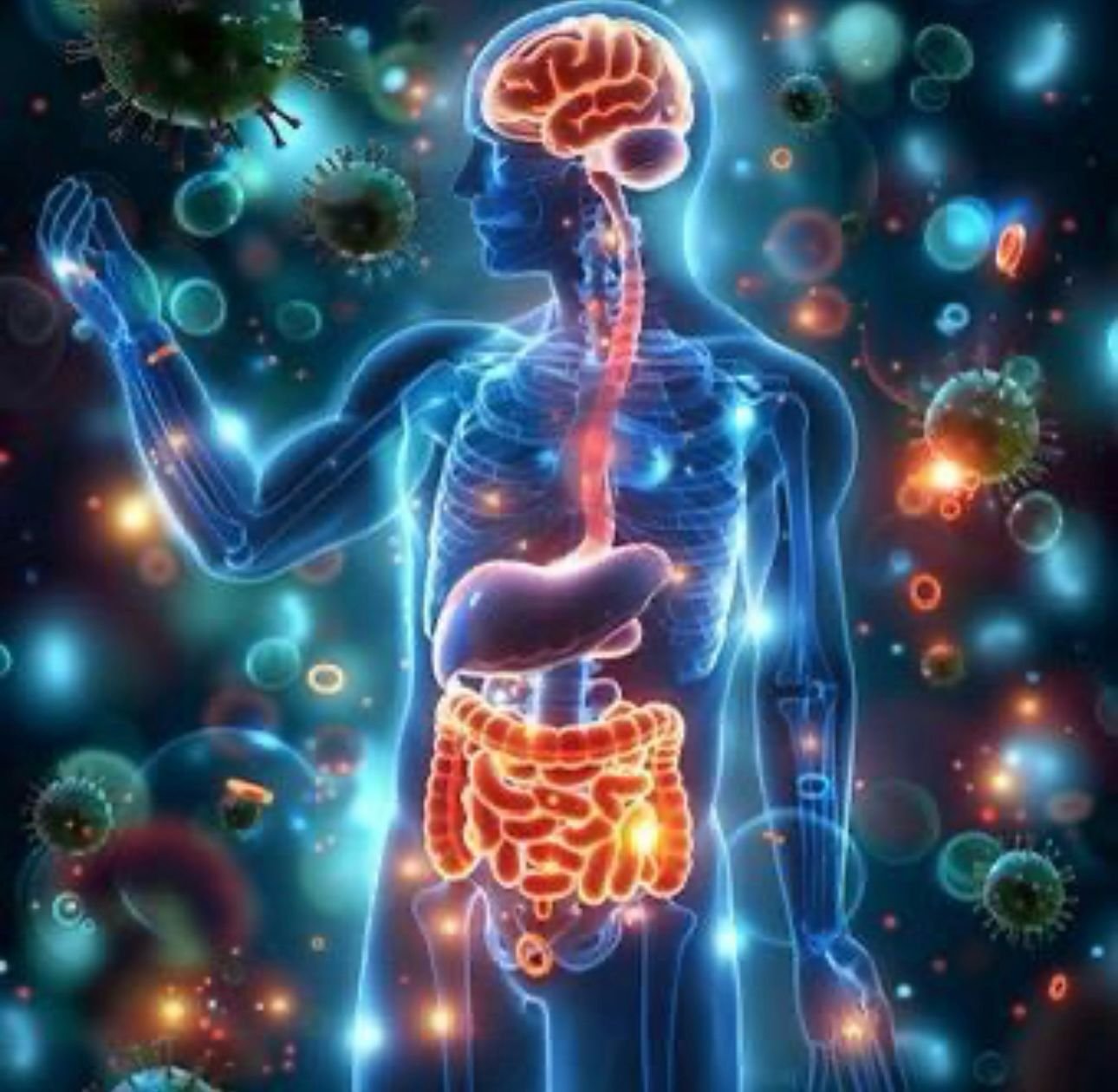Welcome to AnaBio's Gut Health Insights!
Stay informed with the latest discoveries and insights into the fascinating world of the gut microbiome and its profound impact on your overall health.
The Gut-Heart Connection:
A New Frontier in Cardiovascular Wellness
Did you know that the health of your heart is deeply intertwined with the trillions of microorganisms residing within your gut?
The Gut-Heart Axis: Cutting-edge research reveals a powerful connection between the gut microbiome and cardiovascular health. This "gut-heart axis" highlights how imbalances in gut bacteria can significantly contribute to:
Inflammation: Chronic inflammation is a major risk factor for heart disease. An unhealthy gut microbiome can fuel systemic inflammation, damaging blood vessels and increasing the risk of heart attacks and strokes.
Atherosclerosis: The buildup of plaque in the arteries (atherosclerosis) is a key driver of heart disease. Certain gut bacteria can produce metabolites that promote plaque formation.
TMAO (Trimethylamine-N-oxide): This gut-derived metabolite is strongly linked to an increased risk of heart disease

The Power of Beneficial Bacteria: Not all gut bacteria are created equal.
Beneficial bacteria, such as Bifidobacterium species, can:
Regulate the immune system: A balanced immune system is crucial for heart health.
Reduce inflammation: By promoting a healthy gut environment, these bacteria can help dampen inflammation throughout the body.
Harnessing the Microbiome for Heart Health:
Diet: A diet rich in fruits, vegetables, and whole grains provides essential fiber, which acts as a prebiotic, nourishing beneficial gut bacteria. When these probiotic bacteria ferment fiber, they produce short-chain fatty acids, which have anti-inflammatory effects. This diet also helps reduce the production of harmful metabolites.
Probiotics: Supplementing with probiotics containing specific strains of beneficial bacteria may offer significant cardiovascular benefits. Current research focuses on probiotics preventing hypertension, inflammation, cholesterol and plaque buildup, and insulin sensitivity. Probiotics may influence cardiovascular health via restoration of gut microbiota dysbiosis and anti-inflammatory responses. Possible mechanisms include reducing oxidative stress, lowering hypercholesterolemia, and lowering high blood pressure. Probiotics can also regulate cholesterol levels in the blood, reducing LDL (bad cholesterol) and increasing HDL (good cholesterol). Probiotics are a promising, non-invasive, preventative measure solution for cardiovascular diseases, especially coronary artery disease.
Targeted Therapies: Emerging research is exploring innovative therapies to modulate the gut microbiome and improve heart health.
At AnaBio, we are dedicated to harnessing the power of the microbiome to enhance human health. We believe that by deepening our understanding of the gut-heart connection, we can unlock new avenues for preventing and treating cardiovascular disease.



